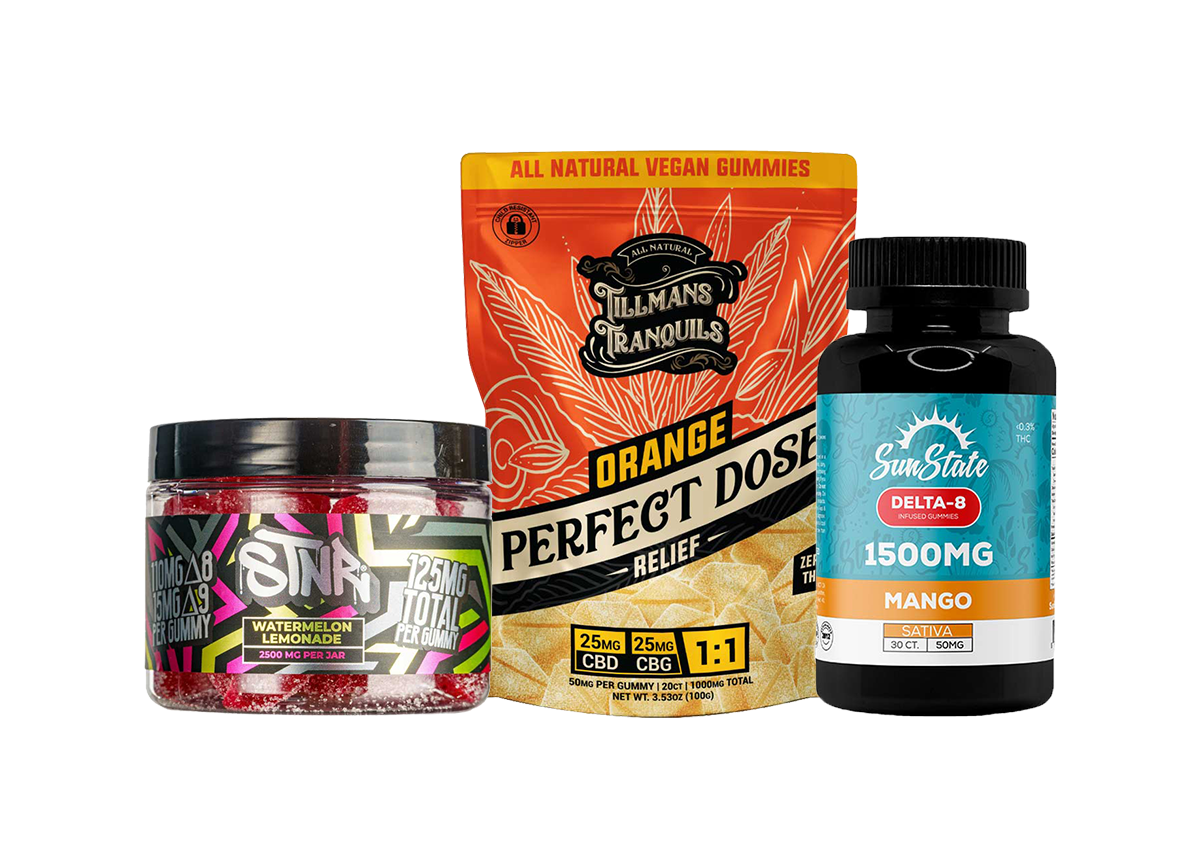Hemp plant, a versatile plant, harbors a spectrum of compounds known as cannabinoids. Two of the most prominent are CBD (cannabidiol) and THC (tetrahydrocannabinol). While they originate from the same plant, they have distinct properties and effects. This exploration will delve into the nuances that differentiate CBD from THC. While both cannabinoids have potential benefits, such as increasing relaxation and improving mood; we will provide a better and more clear understanding of the differences between the two compounds.
What is THC?
THC, or tetrahydrocannabinol, is the primary psychoactive compound. It's the component responsible for the euphoria or "high" feeling commonly associated with marijuana use. THC achieves its psychoactive effects by interacting with the CB1 receptors in the brain and central nervous system, which play a role in pleasure, memory, and cognitive processes. Users often report experiences such as relaxation, mood enhancement, and occasional relief. It's essential to use THC responsibly, and individuals should be aware of and adhere to their state's regulations regarding its use. Please note that individual responses to THC may vary.

What is Delta 9 THC?
Delta-9 THC is the traditional form of THC, known for its psychoactive effects. It's the compound most commonly associated with marijuana. When consumed, it binds to the CB1 receptors, releasing a neurotransmitter called dopamine. This oftentimes gives that “feel good” feeling. As mentioned above, it has shown potential in general well-being. It is also important to note that some side effects can be associated with its use. These can include, but are not limited to, anxiety, memory loss, altered thinking, increased heart rate, and slower reaction times. The legality of Delta-9 THC varies nationally and is often subject to specific regulations.
What is Delta-8 THC, and is it comparable to Delta-9 THC?
Delta-8 THC is a cannabinoid closely related to the more widely recognized Delta-9 THC. Although it is not as potent as Delta-9, it can still produce the same effects, including psychoactive effects. However, these effects are milder. The legality of Delta-8 THC can vary, but it's important to note that, like Delta-9 THC, it can be detected in drug tests. According to the 2018 Farm Bill, Delta-8 THC cannot have more than 0.3% THC.

How Long Does THC Stay in Your System?
The duration THC remains detectable in the body varies based on factors like metabolism, frequency of use, genetics, body fat, and the type of drug test employed. Generally, THC can be detected in urine for a few days to several weeks, in blood for a few hours to a couple of days, and in hair for up to 90 days.
What is CBD?
CBD, or cannabidiol, is another primary cannabinoid found in hemp. Unlike THC, CBD is not psychoactive, meaning it doesn't induce a "high" feeling. CBD has gained popularity for its potential therapeutic benefits, including alleviating stress, promoting relaxation, and relieving body discomfort. CBD interacts with the endocannabinoid system but primarily binds to CB2 receptors, which are more prevalent in the immune system, gastrointestinal tract, and peripheral tissues such as organs and muscles throughout the body.

THC Legality
THC legality hinges on its concentration and the source of the plant. Marijuana-derived THC is subject to varying degrees of legality, with some states embracing it for medicinal or recreational use and others maintaining strict prohibitions. Hemp-derived THC products, with less than 0.3% THC, are federally legal in the United States, but it's crucial to be aware of and comply with local regulations.
In navigating the world of cannabinoids, understanding the distinctions between THC and CBD is essential. CBD has become a cornerstone of wellness products with its non-intoxicating nature and potential therapeutic effects. Meanwhile, THC, appreciated for its psychoactive properties, is subject to diverse legal landscapes. It is important to note that more CBD combined with lower amounts of THC may provide relief without a “high” feeling. Staying informed ensures responsible and compliant engagement with these compounds as regulations evolve.
Note: This content is for educational purposes only and is not intended as medical advice. Readers should consult with their healthcare professionals for medical advice.



